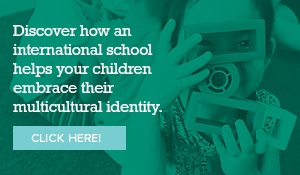
Speaking more than one language offers your children a great advantage in many areas of their lives. Attending a school that embraces multilingualism benefits in education means your children can start mastering their second language (or third) at a young age, as the impact of multiculturalism in education has lasting effects throughout their education and career.
With about 50% of the global population speaking at least two languages, at Nagoya International School (NIS) we are aware of the numerous advantages of multilingualism in education. This is why we embrace the benefits of speaking multiple languages within our curriculum and expand the multilingual skills of our students as multicultural individuals.
What Are the Benefits of Multilingualism in Education?
Below, we’ve outlined some of the benefits your children can experience by attending a school that encourages multilingualism.
Are you curious about enrolling your children in an international school? Find out about the advantages of an international education here.
1. Multilingualism Helps Students When Applying to College
While ultimately your first priority when it comes to selecting the right school for your children is making sure they receive an excellent education, gaining entry into their post-secondary program of choice is a by-product of meeting this goal. But what is the impact of multilingualism in education and what are the benefits of speaking multiple languages?
Research of university and college enrollment processes has indicated one impact of multilingualism in education is that students who showcase multilingual abilities reflect more positively to admissions officers than non-bilingual students.
“These traits are incredibly important for universities particularly in the U.S. where the holistic admission process provides multiple opportunities to demonstrate these skills,” said NIS College Counsellor, Paul Moody.
Through multilingualism, your children are showcasing a greater cultural understanding, which is an essential skill in our diverse world. Equipped with the knowledge of multiple languages and an exceptional education, NIS students have had the opportunity to travel across the globe for college and university pathways.
“We have sent students to universities in the U.S., Australia, Britain, Canada, France, Holland, Hong Kong, Singapore, and Thailand in recent years. Having a strong understanding of different cultures is a massive aid to students and a very desirable trait for colleges,” said Moody.
2. Multilingualism Highlights Student Attributes
While learning in a multilingual environment, our students learn how to be global citizens and how to interact with those who may think differently. This is a necessary skill for not just the modern workforce, but for international cohesion altogether.
Studies have shown that multilingual students exhibit qualities of creativity that are attractive to businesses. These studies have found that candidates who are multilingual not only come up with more ideas during brainstorming sessions, but they also show appealing skills including fluency, flexibility, and novelty during the process of developing their ideas. The impact of multilingualism in education has long lasting effects.
“Students learn that the culture and value systems of their peers are equally as valid as their own. There is no right or wrong, there is simply a need to understand the other point of view. We want students who can engage intelligently in complex and sensitive debates,” said Moody.
3. Multilingualism Contributes to Continued Success
Developing language skills at a young age will have numerous benefits throughout your children’s careers. Studies have shown multilingual employees are offered promotions at a higher rate than their monolingual peers, reflecting just one of the many benefits of multilingualism in education.
This is attributed to the fact that multilingual individuals have enhanced creative skills, are better equipped to incorporate unique perspectives and can “forge conceptual links” that monolingual individuals struggle to match.
“Being multilingual helps students adapt quickly to new environments and consequently achieve their best work sooner rather than later. There are many studies that indicate that IB students adapt to college-level work more quickly than their peers and the adaptability underpinned by cultural understanding is a major part of that,” said Moody.
The effects of a multilingual education found at an international school will follow your children throughout their lives.



